The Crying Game
The Crying Game

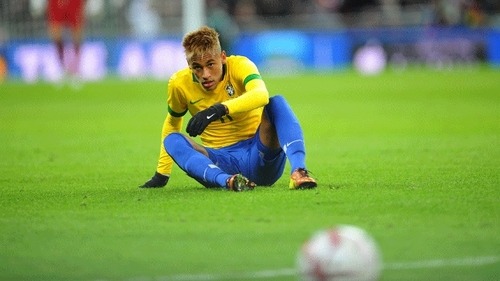
By James Young
What springs to mind when you hear the words “Brazilian football”? Pelé rolling the ball into the path of Carlos Alberto’s thunderous boot in 1970? The Short happy lives of Zico, Sócrates, Éder, Falcão and the rest in the summer of 1982? Ronaldo, Ronaldinho or Romário? The seething cauldron of the Maracanã? Or one of the great club sides, the Botafogo of Garrincha, Pelé’s Santos, or Zico’s Flamengo?
In all probability, one thing that does not readily leap into the consciousness is the name of a great Brazilian manager (with all due respect to Telé Santana, Mário Zagallo, or even the current cream of the crop, Corinthians’ Tite). The lot of the Brazilian coach is not an easy one. When the team wins, the feeling is that it’s down to the players. When the team loses even a handful of games, it’s the burro on the bench who is to blame. The lifespan of the Brazilian manager is roughly as long as that of the mayfly. In honour, then, of this endangered species, here’s a list of five (-ish) of last year’s fallen warriors, in no particular order:
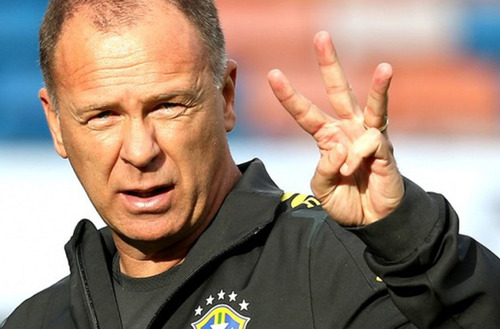
Mano Menezes (Brazil): In the end, nothing became Mano in his job like the leaving of it. Despite more than a few vigorous campaigns for his removal (particularly vocal during the games against South Africa and Argentina last September), opinion among o povo Brasileiro was probably split as to whether he deserved the axe or not. Most, however, will agree that the sacking itself reeked of cack-handedness (unsurprisingly, perhaps, in a process that involved the CBF). Why not sack Mano back in August, after the failure to win Olympic gold? Why in December, after winning the Super Clássico das Américas title (admittedly a not especially pretty jewel), when the team, with a new formation and the return of Kaká alleviating some of the mental pressure on Neymar, finally looked to be finding itself?
Politics, as always, played a part, as Menezes was on borrowed time once the drooling, corpulent latifundiario who hired him (Ricardo Teixeira) was replaced by the drooling, corpulent latifundiario who didn’t like him (José Maria Marin). Things then got worse as the CBF first stated that a decision on Mano’s successor would only be forthcoming in January, and then, perhaps worried about the groundswell of support that seemed to be building for Pep Guardiola, as some have speculated, hurriedly announced Felipão, a man who in his last job dumped Palmeiras in Serie B, as the Keeper Of The Flame.
As Mano exited with his usual stolid dignity, the abiding memory will remain the petty, underhand behaviour of those around him, notably including former great Romário, now putting his generous congressman’s salary to excellent use as a full time bar-room bore. “It’s a historic day for Brazil, a day to party, to set off fireworks”, he crowed after the sacking, presumably removing the pins from his Menezes doll at the same time.
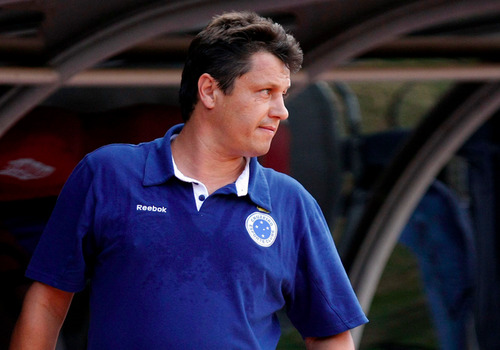
Adilson Batista (Atlético Goianiense): Ah, Adilson. Back in 2009, Mr. Batista, with his neatly coiffured locks, steely, cobalt-blue gaze, and a sturdier pair of buttocks than Adriano in his pomp (invariably showcased in jeans of worrying tightness) was a modern day Mr. Darcy astride the dreams of many a sexually undernourished Belo Horizonte housewife. He was none too shabby on the touchline either, leading Cruzeiro to the Libertadores final in 2009, where the team lost narrowly to a Juan Sebastián Verón inspired Estudiantes.
A mere three years later, the hair is lustrous no more, the gaze is sad and empty, and those marvelous buttocks have drooped and withered to bony shanks. The reason? Atlético Goianiense. Following the glory days at Cruzeiro, Adilson suffered a dry spell at Corinthians (July 24th to October 10th 2010). And then another one at Santos (November 8th 2010 to February 27th 2011). And then another one at Atlético-PR (April 5th to June 25th 2011). And then another one at São Paulo (July 16th to October 16th 2011). Four jobs in fifteen months - the poor lad’s head must have been spinning.
The solution, surely, was a stint away from the big boys. Somewhere with less pressure. Somewhere where expectations were so low he could hardly fail. As Serie A’s most hapless and worst supported club, Atlético Goianiense must have seemed perfect. And for a (very short) while, it was. So much so that Adilson even turned down an offer to go back to Cruzeiro in May, saying it would be unethical to leave little Atlético in the lurch.
It is not known if Adilson’s bosses in Goiânia experienced any such moral crisis when they fired him a couple of weeks later, after the team drew their first two games of the Serie A season. Batista had lasted 56 days in charge. “A team like Atlético can’t play negatively at home,” growled a director. This “team like Atlético” would go on to finish the season second from bottom, fifteen points from safety, and regularly attracted crowds of under a thousand. Adilson, meanwhile, has recently taken over at Figueirense. We wish him well.
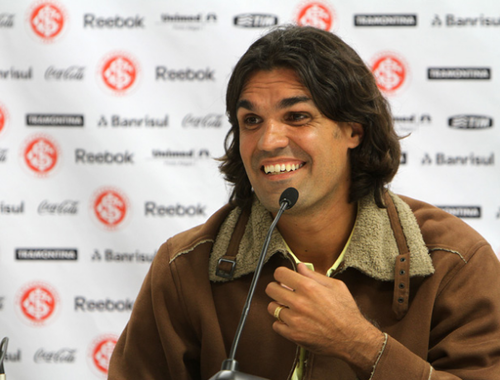
Fernandão (Internacional): Not much is sacred in Brazilian football. Those pre kick-off minutes of silence in respect of a recently deceased former director, player, or tea lady are generally spent jeering and hooting at the opposition fans. Young hopefuls up from the reserves are given all of ten minutes before, if not living up to expectations, the feral booing begins. Fair play is a weird foreignexpression to be pronounced with exaggerated slowness and eyebrows raised as if to say those gringos don’t half have some funny ideas, né?
And so it goes with the former idol turned manager. Fernandão didn’t put in a bad shift during his four years as an Inter player, as his Libertadores and Mundial de Clubes medals from 2006 attest. But neither that, nor his tender 34 years, nor even an uncanny resemblance to both Georgios Samaras and Freddy Mercury, cut much ice when, as manager, he failed to spur a middling side on to great things, and then squabbled publicly with veteran defender Bolívar, leading to rumours of a player revolt. Even so, as Fernandão sobbed his way through his final press conference, it felt as though Inter president Giovanni Luigi had murdered everyone’s favourite puppy.
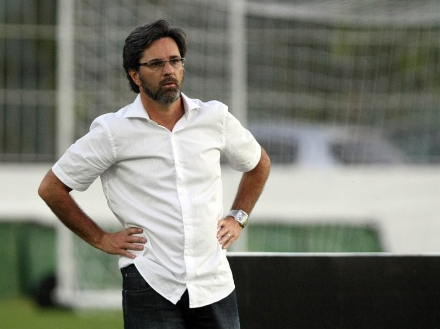
Caio Júnior (Bahia): No list of hasty sackings, deserved or otherwise, would be complete without our Caio. How about his garroting at Botafogo in 2011, when he was removed just six games after a late-in-the-season win away at Corinthians that kept his hugely overachieving side in the title race? Or his blink and you’ll miss it eight games in charge at Grêmio in early 2012? Wikipedia’s grimly factual record of the period makes chilling reading.
“On December 4th 2011 Caio Júnior was hired by Grêmio president Paulo Odone for the 2013 season. On February 20th 2012 Caio Júnior was fired by Grêmio.” One can only imagine what kind of fearsome gaffe our hero must have committed at the club’s Christmas party.
Last year’s Caio story was a good ‘un. Brought in to replace Paulo Roberto Falcão at Bahia, he managed only ten games (two wins, three draws and five defeats) in a month or so, before quitting, citing “personal reasons”, which, as well as a wish to follow his wife and son to the USA, may have included not being liked very much by half the population of Salvador. Either way, it seems that acarajé trumps meatloaf every time, as he’s now back by the Baía de Todos os Santos, in charge of Bahia’s hated rivals Vítoria.
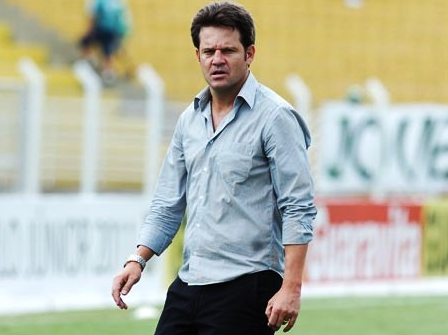
Alencar Mota, Argeu dos Santos, Milton Fernandes (the Ceará State Championship): Not strictly 2012, this one, but too good to ignore. The two big boys from the state capital of Fortaleza, Ceará and Fortaleza, are currently off competing in the Copa do Nordeste, making the stakes higher than usual for some of the smaller teams from the interior. Maybe too high for some trigger happy chairmen.
Sixteen days and four games after the competition started, three out of the nine teams (Guarany de Sobral, São Benedito and Tiradentes), had replaced their coaches. If you can’t stand the heat, get out of the sertão, as the song goes.
There are, of course, some serious repercussions to all this madness. Your average up and coming young managerial hot-shot in Brazil is invariably reduced to a burnt out husk after a few years in the job, his confidence shot, knowing that his new job is likely to last as long as his old one, or in other words, not very long at all.
Careers and continuity are stifled, hampering the proper, sustained development of young players, and meaning that the Brazilian coaching landscape is, with a few exceptions (such as Ney Franco), stalked by dinosaurs, as the recent dispiriting contest to be the next Seleção coach showed. Mayflies have it easy.
This piece was written by James Young, his first for AFR. James has lived in Brazil for the past 7 years and writes about their football for several distinguished sites, as well as The Blizzard. You can follow him on Twitter @seeadarkness. Comments below please.







